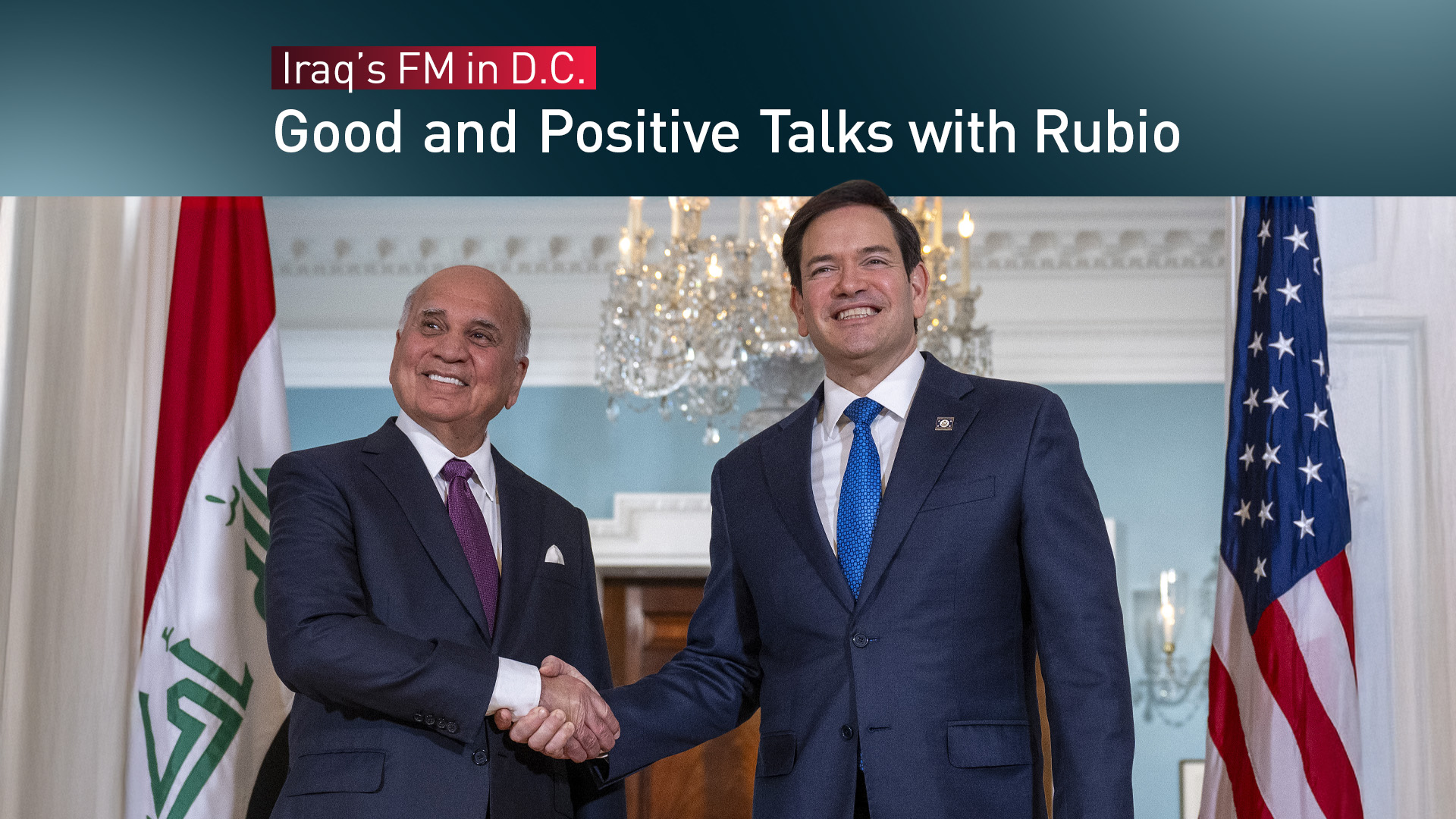Iraq’s FM in D.C.: ‘Good and Positive’ Talks with Rubio
Speaking to Kurdistan24's correspondent Essa Hassan following the meeting, Minister Hussein characterized the encounter as “good and positive,” underscoring the continuation of diplomatic momentum between the two countries.

By Kamaran Aziz
ERBIL (Kurdistan24) – Iraq’s Foreign Minister and Deputy Prime Minister Fuad Hussein met with U.S. Secretary of State Marco Rubio on Friday, April 25, 2025, at the U.S. State Department in Washington, in a high-level meeting that signals renewed strategic dialogue between Baghdad and Washington amid shifting regional dynamics.
Speaking to Kurdistan24's correspondent Essa Hassan following the meeting, Minister Hussein characterized the encounter as “good and positive,” underscoring the continuation of diplomatic momentum between the two countries. The visit comes as part of a broader engagement by the Trump administration with key allies in the Middle East and follows a series of recent communications with leaders in Iraq and the Kurdistan Region.
Minister Hussein, a veteran Kurdish statesman who previously served as Iraq’s Finance Minister and as longtime Chief of Staff to former Kurdistan Region President Masoud Barzani, has been at the forefront of navigating Iraq’s foreign policy in a region marked by volatility. His current trip follows a March 2024 visit to Washington under the Biden administration, during which he helped pave the way for the first official U.S. visit by Iraqi Prime Minister Mohammed Shia al-Sudani.
While the full agenda of the current discussions has not been publicly disclosed, Hussein wrote on the social platform X on Thursday that the meetings aim to “strengthen Iraqi-American relations and coordinate efforts on regional and international issues,” with an emphasis on “enhancing mutual security and cooperation in various fields.”
According to a previous report by Kurdistan24 from Washington D.C., State Department spokesperson Tammy Bruce confirmed that multiple meetings were scheduled but declined to provide further details, stating only that she would personally participate in one of the sessions.
Hussein’s visit follows several notable exchanges between U.S. officials and regional leaders. In late February, Secretary Rubio and Prime Minister Sudani held what was described as a cordial phone call in which both sides agreed on the importance of resuming Kurdish oil exports through the Iraq-Turkey pipeline. Although this resumption has yet to materialize, the exchange marked a significant diplomatic signal.
Read More: Iraqi Deputy PM and FM Fuad Hussein in Washington Today
On April 11, Rubio also held a telephone conversation with Kurdistan Region Prime Minister Masrour Barzani, reaffirming the strength of U.S.-Kurdish ties. A day later, Prime Minister Sudani made a rare visit to Erbil, where he met with Barzani—a meeting widely interpreted as a follow-up to the Rubio-Barzani conversation.
The Kurdistan24 report from Washington D.C. highlighted key topics anticipated during Hussein’s current visit, including Iraq’s energy sector—especially the stalled Kurdish oil exports—regional security threats posed by ISIS and various militias, developments in Syria, and U.S. policy toward Iran. These discussions come amid broader U.S. efforts to recalibrate its regional strategy, as the Trump administration seeks both direct and indirect engagement with key actors throughout the Middle East.
Observers are closely watching whether this round of talks will yield tangible progress on these fronts. The outcome could help define the trajectory of U.S.-Iraqi relations in the coming months, particularly in light of renewed global attention to the fragile security and energy dynamics in the region.
As Iraq marks two years since Prime Minister Sudani took office and the country navigates complex internal and external challenges, the strengthening of ties with Washington—both politically and economically—remains a critical element of Baghdad’s foreign policy calculations.